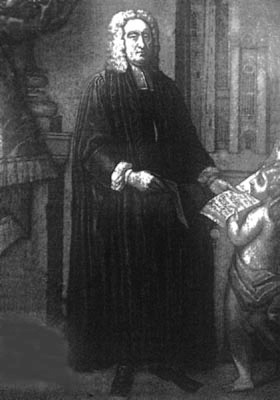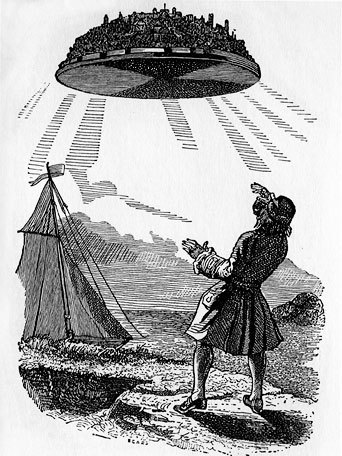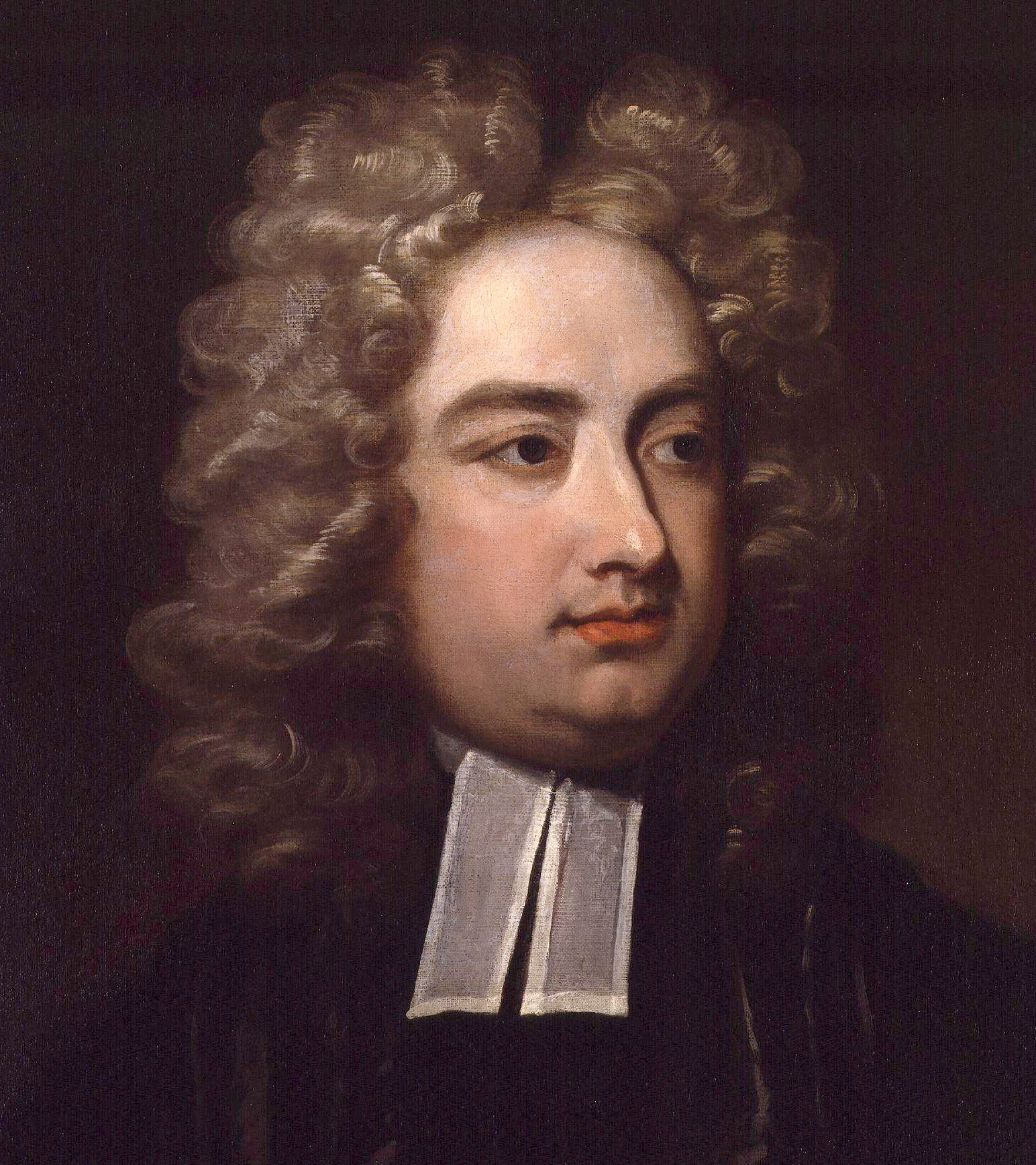|
Diminution (satire)
Diminution is a satirical technique that aims to belittle a subject via description. The term, derived from "diminutive" meaning "small," was defined by critic John M. Bullitt as "speech which tends, either by the force of low or vulgar imagery, or by other suggestion, to depress an object below its usually accepted status." According to Bullitt, diminution can take the form of "ugly or homely images," comparisons to subjects considered to be inferior (with the implication that the thing being compared is inferior as well), focusing on a person's unappealing physical features, or using irony, meiosis, or litotes. Bullitt used the term to describe the writing of satirist Jonathan Swift -- for example, the associations of humans with animals ''Gulliver's Travels'' and "A Modest Proposal." The term has since been associated with Flannery O'Connor, Mark Twain, Henry Fielding, and Oliver Goldsmith Oliver Goldsmith (10 November 1728 – 4 April 1774) was an Anglo-Irish people, Ang ... [...More Info...] [...Related Items...] OR: [Wikipedia] [Google] [Baidu] |
Satire
Satire is a genre of the visual, literary, and performing arts, usually in the form of fiction and less frequently non-fiction, in which vices, follies, abuses, and shortcomings are held up to ridicule, often with the intent of exposing or shaming the perceived flaws of individuals, corporations, government, or society itself into improvement. Although satire is usually meant to be humorous, its greater purpose is often constructive social criticism, using wit to draw attention to both particular and wider issues in society. Satire may also poke fun at popular themes in art and film. A prominent feature of satire is strong irony or sarcasm—"in satire, irony is militant", according to literary critic Northrop Frye— but parody, burlesque, exaggeration, juxtaposition, comparison, analogy, and double entendre are all frequently used in satirical speech and writing. This "militant" irony or sarcasm often professes to approve of (or at least accept as natural) th ... [...More Info...] [...Related Items...] OR: [Wikipedia] [Google] [Baidu] |
Irony
Irony, in its broadest sense, is the juxtaposition of what, on the surface, appears to be the case with what is actually or expected to be the case. Originally a rhetorical device and literary technique, in modernity, modern times irony has also come to assume a metaphysical significance with implications for the correct human attitude towards life. The concept originated in ancient Greece, where it described a dramatic character who pretended to be less intelligent than he actually was in order to outwit boastful opponents. Over time, ''irony'' evolved from denoting a form of deception to, more liberally, describing the deliberate use of language to mean the opposite of what it says for a rhetorical effect intended to be recognized by the audience. Due to its double-sided nature, irony is a powerful tool for social bonding among those who share an understanding. For the same reason, it is also a source of division, sorting people into insiders and outsiders depending upon w ... [...More Info...] [...Related Items...] OR: [Wikipedia] [Google] [Baidu] |
Meiosis (figure Of Speech)
In rhetoric, meiosis is a euphemistic figure of speech that intentionally understates something or implies that it is lesser in significance or size than it really is. Meiosis is the opposite of auxesis, and is often compared to litotes.OED 1st edition The term is derived from the Greek ("to make smaller", "to diminish"). The satirical technique diminution often involves meiosis. Examples Historical *"(Our) peculiar institution", for slavery and its economic ramifications in the American South. * "The Recent Unpleasantness", used in the 19th century, again in the American South, as an idiom to refer to the American Civil War and its aftermath. *" The Emergency", a term used in the Republic of Ireland for the conflict that the rest of the world called the Second World War. *"The Troubles", a name for decades of violence in Northern Ireland. Other *"The Pond", for the Atlantic Ocean ("across the pond"). Similarly, "The Ditch" for the Tasman Sea, between Australia and New Zeala ... [...More Info...] [...Related Items...] OR: [Wikipedia] [Google] [Baidu] |
Litote
In rhetoric, litotes (, ), also known classically as antenantiosis or moderatour, is a figure of speech and form of irony in which understatement is used to emphasize a point by stating a negative to further affirm a positive, often incorporating double negatives for effect. A form of understatement, litotes can be in the form of meiosis, and is always deliberate with the intention of emphasis. However, the interpretation of negation may depend on context, including cultural context. In speech, litotes may also depend on intonation and emphasis; for example, the phrase "not bad" can be intonated differently so as to mean either "mediocre" or "excellent". Along the same lines, litotes can be used (as a form of auxesis), to euphemistically provide emphasis by diminishing the harshness of an observation; "He isn't the cleanest person I know" could be used as a means of indicating that someone is a messy person. The use of litotes is common in English, Russian, German, Yiddish, Dut ... [...More Info...] [...Related Items...] OR: [Wikipedia] [Google] [Baidu] |
Jonathan Swift
Jonathan Swift (30 November 1667 – 19 October 1745) was an Anglo-Irish writer, essayist, satirist, and Anglican cleric. In 1713, he became the Dean (Christianity), dean of St Patrick's Cathedral, Dublin, and was given the sobriquet "Dean Swift". His trademark deadpan and ironic style of writing, particularly in works such as ''A Modest Proposal'' (1729), has led to such satire being subsequently termed as "Swiftian". He wrote the satirical book ''Gulliver's Travels'' (1726), which became his best-known publication and popularised the fictional island of Lilliput and Blefuscu, Lilliput. Following the remarkable success of his works, Swift came to be regarded by many as the greatest satirist of the Georgian era, and one of the foremost prose satirists in the history of English literature. Swift also authored works such as ''A Tale of a Tub'' (1704) and ''An Argument Against Abolishing Christianity'' (1712). He originally published all of his works under pseudonyms—including L ... [...More Info...] [...Related Items...] OR: [Wikipedia] [Google] [Baidu] |
Gulliver's Travels
''Gulliver's Travels'', originally titled ''Travels into Several Remote Nations of the World. In Four Parts. By Lemuel Gulliver, First a Surgeon, and then a Captain of Several Ships'', is a 1726 prose satire by the Anglo-Irish writer and clergyman Jonathan Swift, satirising human nature and the imaginary "Imaginary voyage, travellers' tales" literary subgenre. It is Swift's best-known full-length work, one of the most famous classics of English literature, and popularised the fictional island of Lilliput and Blefuscu, Lilliput. The English poet and dramatist John Gay remarked, "It is universally read, from the cabinet council to the nursery." The book has been adapted for over a dozen films, movies, plays, and theatrical performances over the centuries. The book was an immediate success, and Swift claimed that he wrote ''Gulliver's Travels'' "to vex the world rather than divert it". Plot Part I: A Voyage to Lilliput The travel begins with a short preamble in which Lemuel Gu ... [...More Info...] [...Related Items...] OR: [Wikipedia] [Google] [Baidu] |
A Modest Proposal
''A Modest Proposal for Preventing the Children of Poor People from Being a Burthen to Their Parents or Country, and for Making Them Beneficial to the Publick'', commonly referred to as ''A Modest Proposal'', is a Juvenalian satirical essay written and published by Anglo-Irish writer and clergyman Jonathan Swift in 1729. The essay suggests that poor people in Ireland could ease their economic troubles by selling their children as food to the elite. Swift's use of satirical hyperbole was intended to mock hostile attitudes towards the poor and anti-Catholicism among the Protestant Ascendancy as well as the Dublin Castle administration's policies in general. In English writing, the phrase "a modest proposal" is now conventionally an allusion to this style of straight-faced satire. Synopsis Swift's essay is widely held to be one of the greatest examples of sustained irony in the history of English literature. Much of its shock value derives from the fact that the first portion ... [...More Info...] [...Related Items...] OR: [Wikipedia] [Google] [Baidu] |
Flannery O'Connor
Mary Flannery O'Connor (March 25, 1925August 3, 1964) was an American novelist, short story writer, and essayist. She wrote two novels and 31 short stories, as well as a number of reviews and commentaries. O'Connor was a Southern writer who often wrote in a sardonic Southern Gothic style. She relied heavily on regional settings and grotesque characters, often in violent situations. In her writing, an unsentimental acceptance or rejection of the limitations, imperfections or differences of these characters (whether attributed to disability, race, crime, religion or sanity) typically underpins the drama. O'Connor's writing often reflects her Catholic faith, and frequently examines questions of morality and ethics. Her posthumously compiled ''Complete Stories'' won the 1972 U.S. National Book Award for Fiction and has been the subject of enduring praise. Early life and education Childhood O'Connor was born on March 25, 1925, in Savannah, Georgia, the only child of Edward F ... [...More Info...] [...Related Items...] OR: [Wikipedia] [Google] [Baidu] |
Mark Twain
Samuel Langhorne Clemens (November 30, 1835 – April 21, 1910), known by the pen name Mark Twain, was an American writer, humorist, and essayist. He was praised as the "greatest humorist the United States has produced," with William Faulkner calling him "the father of American literature." Twain's novels include ''The Adventures of Tom Sawyer'' (1876) and its sequel, ''Adventures of Huckleberry Finn'' (1884), with the latter often called the "Great American Novel." He also wrote ''A Connecticut Yankee in King Arthur's Court'' (1889) and ''Pudd'nhead Wilson'' (1894) and cowrote ''The Gilded Age: A Tale of Today'' (1873) with Charles Dudley Warner. The novelist Ernest Hemingway claimed that "All modern American literature comes from one book by Mark Twain called ''Huckleberry Finn''." Twain was raised in Hannibal, Missouri, which later provided the setting for both ''Tom Sawyer'' and ''Huckleberry Finn''. He served an apprenticeship with a printer early in his career, and ... [...More Info...] [...Related Items...] OR: [Wikipedia] [Google] [Baidu] |
Henry Fielding
Henry Fielding (22 April 1707 – 8 October 1754) was an English writer and magistrate known for the use of humour and satire in his works. His 1749 comic novel ''The History of Tom Jones, a Foundling'' was a seminal work in the genre. Along with Samuel Richardson, Fielding is seen as the founder of the traditional English novel. He also played an important role in the history of law enforcement in the United Kingdom, using his authority as a magistrate to found the Bow Street Runners, London's first professional Police, police force. Early life Henry Fielding was born on 22 April 1707 at Sharpham Park, the seat of his mother's family in Sharpham, Somerset. He was the son of Lt.-Gen. Edmund Fielding and Sarah Gould, daughter of Sir Henry Gould. A scion of the Earl of Denbigh, his father was nephew of William Fielding, 3rd Earl of Denbigh. Educated at Eton College, Fielding began a lifelong friendship with William Pitt the Elder. His mother died when he was 11. A suit for custod ... [...More Info...] [...Related Items...] OR: [Wikipedia] [Google] [Baidu] |
Oliver Goldsmith
Oliver Goldsmith (10 November 1728 – 4 April 1774) was an Anglo-Irish people, Anglo-Irish poet, novelist, playwright, and hack writer. A prolific author of various literature, he is regarded among the most versatile writers of the Georgian era. His comedy plays for the English stage are considered second in importance only to those of William Shakespeare, and his ''magnum opus'', the 1766 novel ''The Vicar of Wakefield'', was one of the most popular and widely read literary works of 18th-century Great Britain. He wrote plays such as ''The Good-Natur'd Man'' (1768) and ''She Stoops to Conquer'' (1771), as well as the poem ''The Deserted Village'' (1770). Goldsmith is additionally thought by some literary commentators, including Washington Irving, to have written the 1765 classic children's novel ''The History of Little Goody Two-Shoes'', one of the earliest and most influential works of children's literature. Goldsmith maintained a close friendship with Samuel Johnson, anothe ... [...More Info...] [...Related Items...] OR: [Wikipedia] [Google] [Baidu] |







